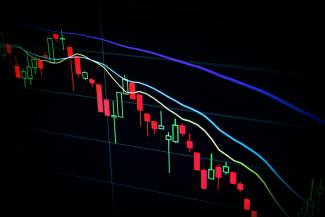
Stock Markets Tumble Nearly 10% in 2 Days—Is This Time Really Different?
by David Hodges on Apr 7, 2025
Historic Losses in the Stock Market & What to Make of it:
On April 3rd, 2025, global stock markets took a hit following the announcement of new tariffs by President Trump. Each index recorded its steepest single-day decline since March 2020 during the COVID crash. On April 4th, markets continued downward, rounding out nearly a 10% loss in just two days.
-
S&P 500 fell 10.3%
-
Dow Jones dropped 9.5%
-
NASDAQ slid 12.9%
Panic driven headlines are everywhere—online, TV, social feeds, conversations with friends. And naturally, you might be wondering:
“What should I do about my investments?”
Step One: Don’t Panic
It’s important to remember: just because the S&P, Dow, or Nasdaq are tumbling doesn’t mean your portfolio is. Most investors hold diversified portfolios, including:
-
U.S. & International stocks
-
Large-, mid-, and small-cap companies
-
Bonds or Fixed Income
A well-constructed portfolio is designed to weather short-term volatility. The hardest, and often wisest move during sudden drops? Do nothing.
Selling Out of the Stock Market Can Come at a Major Cost:
The urge to try and time the market can cost you—big time. Taking your money out of the stock market and parking it in cash – especially during a stock market decline can have a devastating impact on your portfolio:
-
If you missed just the best week in the market (November 28, 2008), your portfolio would have ended up with only 80% of the value compared to staying invested.
-
Missing the 3-month rebound after March 2020, the best quarterly return since 1997, could’ve cost you 30% of your portfolio’s value. For a $1 million portfolio, that’s a $300,000 mistake.

If you look closer at the chart, what do all the date ranges have in common? They come amid turbulent times in the stock market:
· 2008-2009 Financial Crises
· 2020 Covid Decline
Sometimes, the best times in the stock market come immediately after the worst.
“But, This Time is Different!”
These periods of sharp declines are real and painful—but they’re not new. Here are just a few historical examples where panic struck investors:
-
Black Monday (1987) – Dow dropped 23% in one day
-
Y2K & Dotcom Crash
-
9/11 Terror Attacks
-
2008 - 2009 Financial Crisis
-
COVID-19 Global Pandemic
Each time, the same sentiment echoed: “This time is different.” And yet, every time, the market found its way forward.
A Historical Perspective: $100,000 in 1970 – “Would you Have Invested in the Stock Market?
Imagine you were given $100,000 in 1970 and told:
“Over the next 55 years, the U.S. will experience wars, recessions, terrorist attacks, natural disasters, a housing collapse, and a global pandemic, that killed millions” - Would you have invested?
If you had placed that $100,000 in a globally diversified portfolio of stocks (U.S. and international), by today it would be worth over $11.7 million.

Tune Out the Noise
I don’t want to downplay weeks like this one, where the stock market is down 10% in two days, and everyone seems to be ringing the alarm bells and panic buttons telling you to make a move. Times like these are scary, uncertain, and frightening,
But over the past 100 years, markets—powered by human ingenuity, problem-solving, and productivity—have continued to reward long-term investors, even through tough times.
Regardless of whether these tariffs will stay or go, companies like Apple will continue making iPhones, Coca-Cola will keep selling beverages, and Amazon will keep delivering packages. Their focus on growth and profits remains steady, no matter who occupies the Oval Office, or what policies they may implement.
Times like these are where you can really benefit from a financial advisor. They can help you tune out the noise of the panic surrounding you and your investments. The people ringing the panic alarms, telling you to do something don’t know about your financial situation, your investment horizon, your financial goals, or your risk tolerance. Listen to people who know your financial situation – not talking heads who profit off generating panic.
So yes—this time may feel different, but history suggests the outcome probably won't be.
